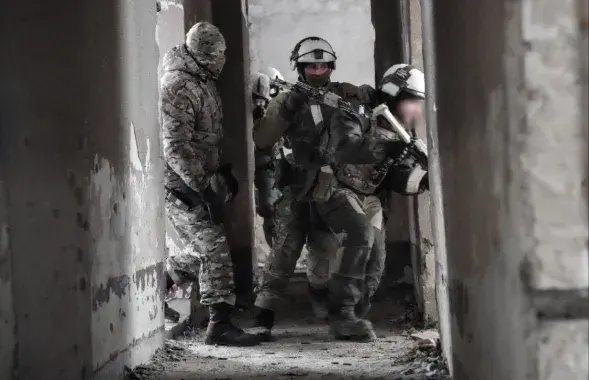OSCE representatives: Limiting Internet resembles burning down books
Journalists, OSCE representatives and the authorities have discussed the problems of limiting ByNet.
State officials met at a round-table discussion dedicated to the
problems of ByNet on Monday. The meeting was organized by the OSCE
representative office in Minsk and the OSCE Representative on Freedom of
the Media Dunya Miyatovich in particular. Starting a discussion about
the problems and prospects of development of ByNet, she drew attention
to the danger of limiting the freedom of speech implied by presidential
decree #60 “On Internet Regulation”.
Miyatovich: "I expect and
hope that the legislation concerning this field will be changed in a
certain way. It is necessary to simplify the serious and complicating
effect produced by the legislation of the rights of citizens to express
their opinion online. Especially before the elections of the Belarusian
President appointed for December 19”.
In Dunya Miyatovich’s opinion, limiting the Internet resembles burning down books.
The
official side of the round-table discussion was represented by the
Ministry of Information, the Ministry of Communications, the Ministry of
Internal Affairs and employees of the President’s Operative Analytical
Centre.
Providers, journalists, representatives of the Belarusian Association of
Journalists, OSCE and a guest from Moscow – the director of the Media
Law and Policy Centre Andrei Richter - sat opposite the officials. He
reminded that Belarus had committed itself to sticking to the documents
concerning the freedom of speech adopted by the United Nations
Organization and the Organization for Security and Co-operation in
Europe.
Andrei Richter: “The OSCE Charter for European Security
adopted with an active participation of Belarus in 1999 says: “We
confirm the importance of independent mass media and free information
flows as well as the society’s access to information. We oblige to
create conditions necessary for the functioning of independent mass
media and free information flows as well as unimpeded transborder and
domestic information flows”.
In his opinion, the law adopted in Belarus and a number of decrees are
aimed at limiting the freedom of speech. The professor mentioned that
Internet users had to show their IDs in cafes and clubs, the illegality
of anonymous information access and distribution, the registration of
domains in the .BY segment, the supply of remote access services for
investigation operations and many other things. There is also a decree
according to which state institutions will be deprived of the access to
websites “containing harmful and unlawful information”.
Andrei
Richter: “The problem of the norm is the fact that the notion of
dangerous and unlawful information in the Belarusian legislation is
presented in a way allowing a legal vagueness of categories. They are
not presented as clear notions and do not allow citizens to regulate
their behaviour foreseeing the consequences of this or that situation”.
In
the Russian specialist’s opinion, Belarusian laws in the field of the
Internet have many drawbacks and limit the freedom of opinion and mass
media.
The analysis offended a representative of the President’s
Operative Analytical Centre Syarhei Krautsou who responded to the
Russian specialist in the “look at yourself” way.
Syarhei
Krautsou: "Discussions about cyber safety and limiting the right for
privacy have been going on since the Internet was created. However, I
would like to note that journalists do not get killed in Belarus unlike
it happens in some neighbouring states. That is why I think the measures
taken in Belarus to make the Internet open are right!”
Then he admitted that the state was really trying to regulate the world
wide web. However, it was not the whole Internet but only its segment -
ByNet. He said that everything that was being done for it with the help
of law and decrees was good for the segment and for the freedom of
speech in general. Those who are against such a positive development of
ByNet will have to answer in law. Krautsou admitted that a bill on
administrative responsibility for violating decree #60 has been
elaborated. For example, it will be the responsibility for networks,
systems and resources situated abroad when services are rendered to
Belarusian citizens.
The deputy head of the IT criminal investigation
department of the Ministry of Internal Affairs Ihar Parmon reproached
providers and journalists with hiding and not taking part in the
elaboration of the Internet legislation.
Іhar Parmon: “We have
needed the efforts of the Council of Europe to gather here and express
our opinions. There are press representatives taking notes. In my
opinion, they had to gather us earlier or to ask us questions
individually. The press is not interested in the topic much”.

The statement made the director of “Trustworthy Programmes” Yury Ziser criticise the way laws were adopted in our country.
Yury
Ziser: “Many things are not even explained. They adopt some document at
first and then it just falls from the sky, it is not clear from where.
And you start thinking what every paragraph means and you get
explanations only a few months alter. All the innovations are introduced
by decrees, orders and laws instead of bills”.

The discussion lasted for a long time. For example, officials from
the Ministry of Communications asked why it was necessary to scare
people with the possibility of creation of a black list of websites to
leave it empty in the end. It turned out everyone had to fill it in on
their own. And so on.
In the opinion of the deputy chairperson of the
Belarusian Association of Journalists Anrdei Bastunets, it is good that
the meeting took place but there will be no results.
Anrdei
Bastunets: “I don’t believe we can say that the round-table discussion
will lead to the state consulting representatives of the civil or
business community in this field”.

According to him, officials said a lot about the struggle with cyber
crimes but did not mention issues of the freedom of speech, the freedom
of mass media and the citizens’ right for information.
Photo by: Zmitser Lukashuk

















